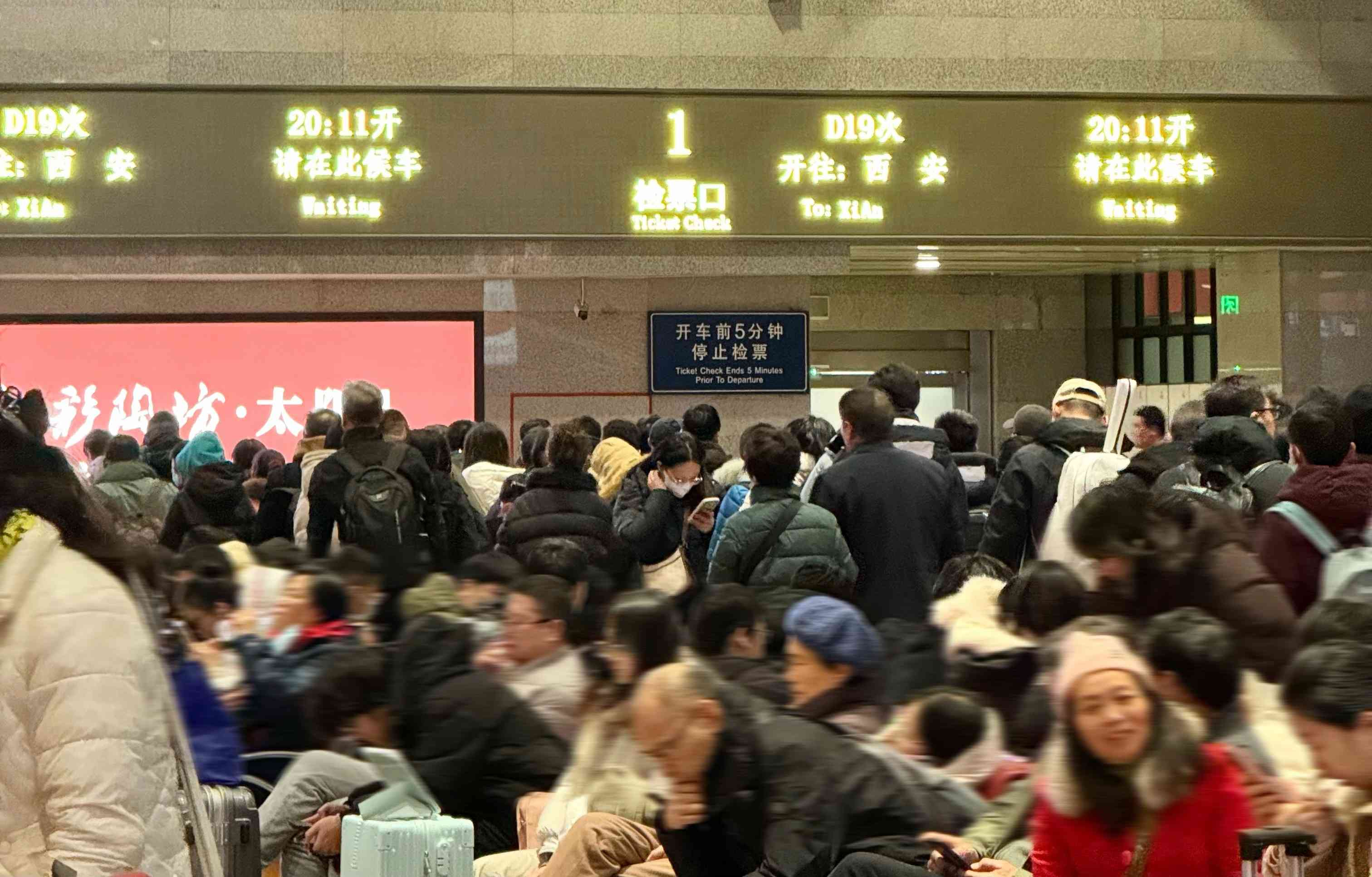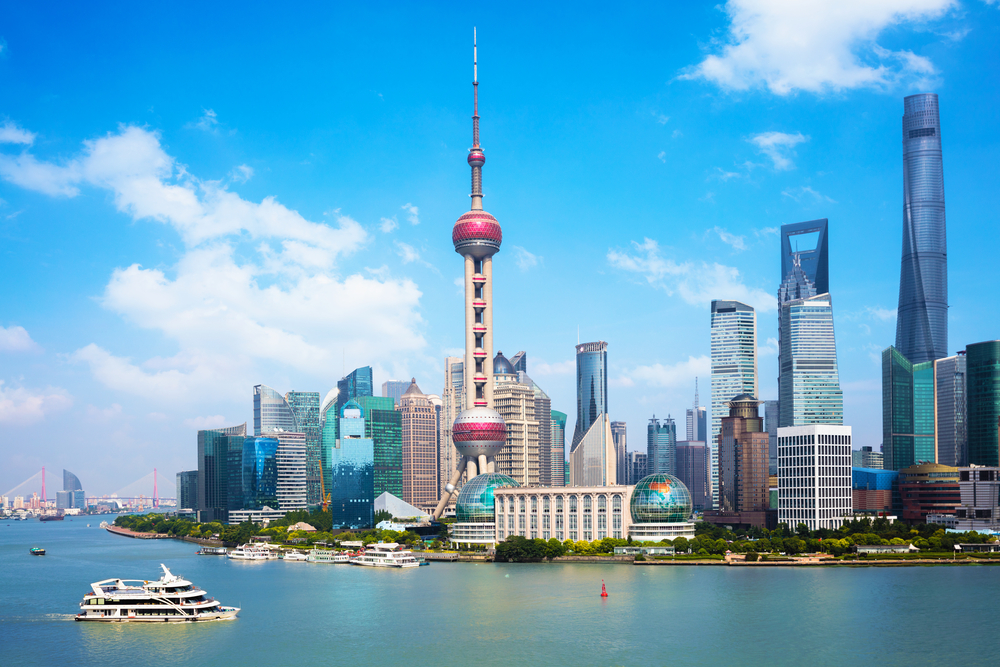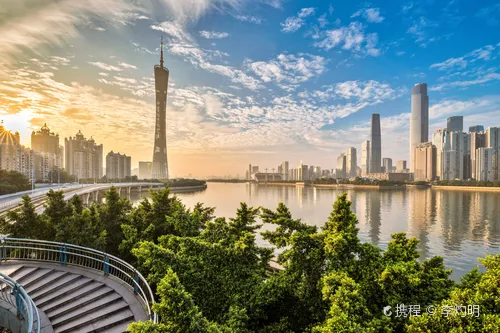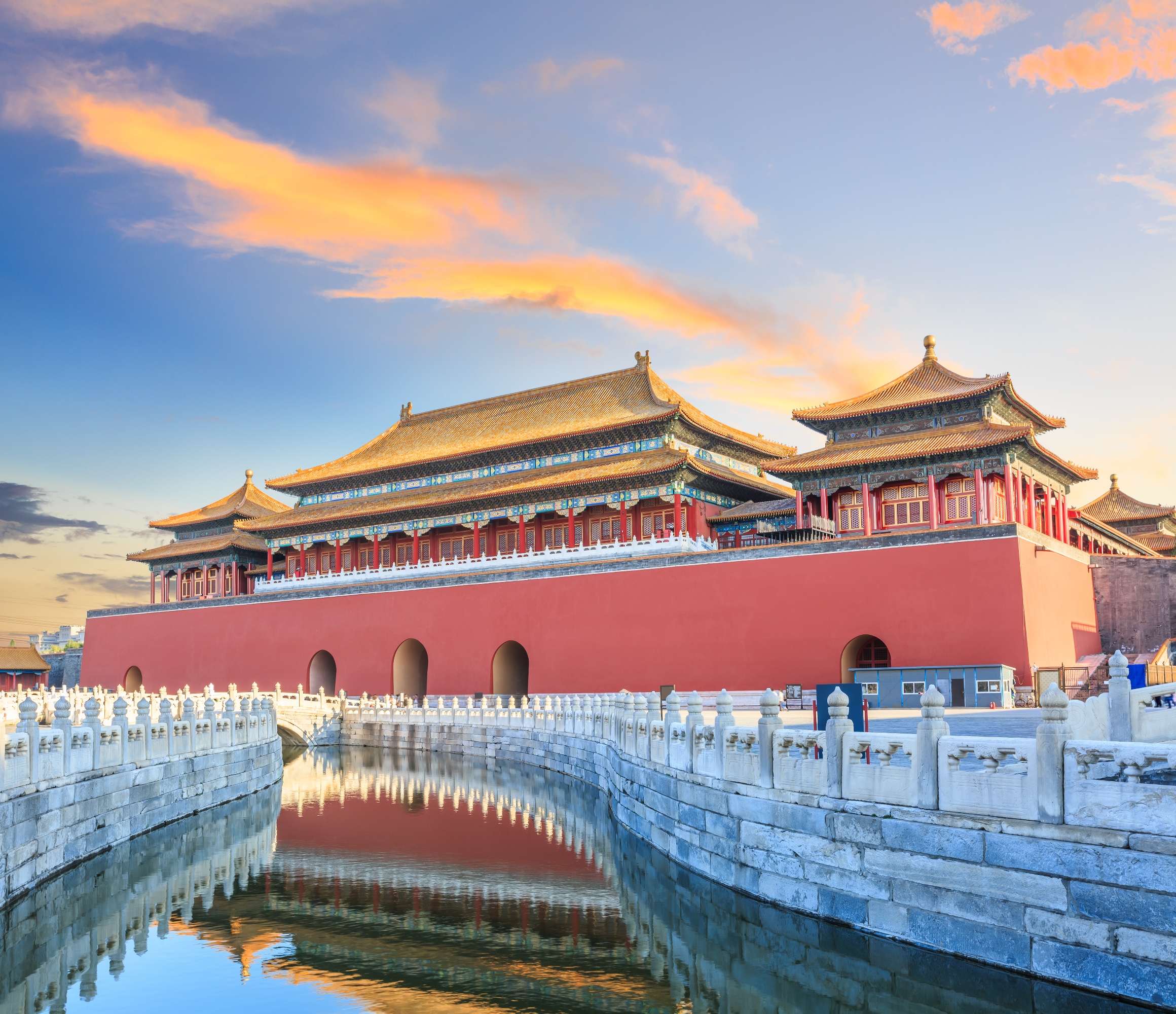
Travelling by train in China during peak season can be a challenge, especially for foreign visitors experiencing the busy stations for the first time.
This guide covers the busiest travel periods, how to book tickets early, choosing the right seat class and train type, when to arrive at the station, navigating crowded stations, and practical travel tips.
Understanding these aspects will help you plan a smoother and more comfortable journey. Find out how to make the most of your train travel in China during the busiest times.
What Are the Busiest Travel Seasons in China?
China’s train travel peak seasons mainly occur during major public holidays such as the Spring Festival, National Day, and other shorter festivals, as well as the summer travel rush. These periods see the highest passenger volumes due to family reunions, tourism, and student travel. The table below lists the details on the busiest travel seasons in China.
Holiday/Season | Time Period | Duration | Key Factors |
Spring Festival (Chinese New Year) | Mid-January to late February | ~40 days | Busiest period of the year; massive family reunions; travel starts weeks before and continues after the holiday. |
National Day Holiday ("Golden Week") | Early October (Oct 1–7) | 7 days | Nationwide holiday; heavy domestic tourism; one of the largest travel peaks. |
May Day Holiday (Labor Day) | Early May (May 1–5) | 5 days | Increased travel for short vacations and domestic tourism. |
Summer Holiday | July 1 – September 1 | ~60 days | Students, tourism, and family visits; accounts for about 25% of annual passenger volume. |
Mid-Autumn Festival | September (date varies, lunar calendar) | ~3 days | Family reunions and leisure travel; moderate to heavy passenger flow. |
Dragon Boat Festival | June (date varies, lunar calendar) | 3 days | Short holiday, regional travel, and tourism increase. |
Qingming Festival (Tomb-Sweeping Day) | Early April | 3 days | Family travel to ancestral hometowns; regional travel surges. |
When Is the Best Time to Book Train Tickets During Peak Season?
The best time to book train tickets during peak season is as early as possible, ideally on the first day of ticket release. If tickets are sold out, you can still try during ticket return periods or use the official standby booking function to increase your chances.
Check Ticket Release Times
- Ticket release times differ by station.
- You can check them in the 12306 App (Chinese version): Homepage → swipe right to “All Apps” (全部应用) → “Travel Guide” (出行向导) → “Release Time” (起售时间).
- You can enter your station name and date, or view all stations’ schedules.
Station | Release Time |
Beijing West | 08:00 |
Beijing South | 12:45 |
Shanghai Hongqiao | 13:45 |
Guangzhou South | 10:15 |
Shenzhen North | 09:15 |
Nanjing South | 08:15 |
- 💡 Tip: Log in 10–15 minutes before release time to prepare.
Pay Attention to Pre-Sale Periods
- High-speed/EMU trains: usually released 15 days in advance; some popular routes may release 20 days earlier.
- Regular trains: usually released 15 days in advance; sometimes tickets are released again 10 days or 1 week before departure.
- Always try to book on the very first day of pre-sale, especially for popular routes.
Watch Refund Ticket Peaks
- 24 hours before departure: many refunded tickets are released.
- 4.5 hours before departure: station managers may release special approval tickets.
- Refresh the app often during these times to grab returned tickets.
Use Waitlist Booking (候补购票)
- If you fail to get a ticket, submit a waitlist booking request in the 12306 App or Trip.com.
- The system automatically matches you with refunded or rescheduled tickets.
- Set a long validity period (e.g. until 20 minutes before departure) to improve your chances.
Ticket Booking Tips
- Know the release rhythm: new tickets often appear at 08:00, 09:00, 12:00, or 12:30.
- Refund peak hours: 16:00–17:00 and 1–2 days before departure are the best times to check.
- Avoid busy hours: booking is harder during 08:00–09:30 and 13:00–15:00. Try midnight (00:00–06:00) when traffic is lighter.
- Understand refund rules: large numbers of tickets return to the system at 15 days, 48 hours, and 24 hours before departure.
- New train routes: on the first release day, 20–30% of tickets are usually available.
How to Choose the Right Seat Class and Train Type for Peak Season Travel in China?
During peak season, travellers need to balance comfort, speed, and price. High-speed trains (G/D/C train) with First Class, Business Class, or EMU sleepers are best for long journeys, while regular trains may suit budget travellers. Choosing the right seat and train type can make your journey more comfortable.
Seat Class Recommendations
Seat Class | Layout | Best For | Peak Season Advantage |
Business Class | 2+1 or 1+1 layout, spacious | Travellers needing privacy and comfort | Quiet, least crowded, maximum comfort |
First Class | 2+2 layout | Long-distance travellers, working on board | More space than Second Class |
Second Class | 3+2 layout | Families, budget travellers | Cheapest on high-speed trains; quiet carriages available |
Soft Sleeper (Lower Berth) | 2-level bunks with door | Overnight long-distance travellers | More privacy, easier to move, fewer people |
Hard Sleeper (Lower Berth) | 3-level bunks | Overnight travellers on a budget | Affordable, more convenient than upper berths |
💡 Tips:
- Travelling with children or elderly: choose window seats (A/F) or lower sleepers for easier movement.
- Avoid peak times like Spring Festival and Golden Week if possible, or travel off-peak hours.
Train Type Recommendations
- High-Speed Trains (G/D/C series)
- Fast and frequent; best for trips under 3 hours (e.g. Beijing–Tianjin, Guangzhou–Shenzhen, Shanghai–Hangzhou).
- Ideal for business travel and long-distance journeys.
- Tickets sell out quickly during holidays — book early.
- Ordinary Trains (Z/T/K/Number series)
- Some “green trains” still run, but they run slower than high-speed trains.
- Good choice if you want lower prices and have flexible time.
- Often more crowded, with older facilities and a noisier environment compared to high-speed trains.
How Early Should You Arrive at China's Train Stations During Peak Season?
During peak season, it is recommended to arrive at train stations at least 60 minutes before departure, especially at major hubs. On regular days, arriving 30–45 minutes early is usually sufficient. Allowing extra time helps manage long queues at security checks, ticket gates, and unexpected delays.
General Recommendations and Time Allocation
- Major Hub Stations (e.g. Beijing Station, Shanghai Hongqiao, Guangzhou South)
- Normal days: 45–60 minutes before departure.
- Peak season (Spring Festival, summer travel, holidays): at least 60 minutes; extreme peak days may require even earlier arrival.
- Example: During 2025 Spring Festival, Beijing Station handled a single-day peak of 187,700 passengers, significantly increasing queue times.
- Time Distribution Example
Activity | Normal Time | Peak Season Time |
Security Check | 5–15 minutes | 20+ minutes |
Walking to Ticket Gate | ~10 minutes | ~10–15 minutes |
Buffer for Unexpected Events | 0–10 minutes | 15–20 minutes |
- Reasons to Arrive Early
- High Passenger Flow: Long queues at security and ID verification during holidays or peak travel seasons.
- Ticket Gate Limits: Most stations close ticket gates 3–5 minutes before departure; arriving early ensures enough time for boarding.
- Unexpected Events: Traffic delays, extra security checks, or locating your platform may require extra time.
How to Navigate Busy Train Stations During Peak Season?
Train stations are crowded and busy during peak season, so you'll need to plan your trip carefully and be patient. Arrive early, know your train and gate information, and follow station rules to ensure a smooth journey. Using available services and staying alert can make travelling much easier.
Plan Your Journey in Advance
- Avoid peak times: Try to travel outside morning, noon, or evening rush hours.
- Check train schedules: Use the 12306 App, Trip.com App or station electronic boards to know departure times and platforms.
- Allow extra time: Arrive 30–60 minutes early to account for security checks and passenger flow.
Choose the Best Queue Position
- Observe crowd flow: Select escalators near the edges or use snake-like queueing to reduce waiting time.
- Special channels for luggage: Large items can often be directed through staff-assisted lanes.
Follow Station Rules and Stay Calm
- Queue patiently: Avoid pushing or cutting in line.
- Seek help if needed: Staff can assist with emergencies or special guidance.
Use Station Services
- Fast-track gates: Some stations provide priority boarding lanes for marked tickets. Foreign travellers can also use staff-assisted manual gates, which are usually less crowded.
- Additional staff and volunteers: Many stations add temporary guidance during peak seasons.
- Dynamic train adjustments: Major stations like Chengdu may add extra services or adjust schedules.
Safety and Awareness
- Follow safety signs and announcements: Pay attention to electronic boards, announcements, and wet floor or other hazard warnings.
- Keep belongings secure: Watch personal items carefully to avoid loss.
- Stay within safety lines on platforms: Avoid gaps and do not use mobility devices on platforms.
Handling Special Situations
- Missed trains: You may also change to any available same-day train (before 24:00) for free — this also applies if you miss your original train!
- Lost items: Report to the station’s lost-and-found with detailed information.
- Travel with children or elderly: Use barrier-free lifts when possible and ensure supervision at stairs and escalators.
Tips for Train Travel in China During Peak Season
During peak season, trains are crowded and tickets sell quickly, so planning ahead helps make your journey smoother. Preparing documents, luggage, and understanding station procedures can save time and reduce stress. The following are practical tips for train travel during busy periods to help you move around safely and efficiently.
1. Booking Tickets and Choosing Seats
- Plan Ahead: Tickets sell fast during peak season. Use the 12306 website or App to book early. Consider connecting tickets or standby booking to improve your chances.
- Select Seats/Berths Online: On high-speed trains, you can choose your seat in advance, such as window or aisle. For sleeper tickets, the system prioritises lower berths for passengers over 60. Groups travelling together are usually arranged in adjacent berths when possible.
2. Preparing Luggage
- Must-Have Items: Valid ID documents (valid passport, ID card, etc.). Children without an ID should bring other valid identification, such as a birth certificate.
- Prohibited Items: Guns, ammunition, explosives, knives, flammable or dangerous goods are strictly forbidden.
3. Station Tips
- Allow Extra Time: Arrive early to complete security checks, ticket scanning, and boarding.
- Verify Information: Check your waiting room, ticket gate, and platform again after entering the station.
- Safety: Stand firmly on escalators, watch children and elderly, and do not let children play on luggage.
4. On-Board Safety
- Boarding and Alighting: Wait until the train stops completely. Mind the gap between the train and platform.
- Inside the Train: Smoking is prohibited. Avoid touching emergency brakes or doors.
- Keep Belongings Secure: Place luggage safely on racks to prevent falling.
Peak Season Train Travel FAQs
Q: How far in advance should I book train tickets in China?
A: You can book train tickets up to 15 days in advance.
Q: What if I cannot get a train ticket during peak season?
A:
- You can try waitlist booking. The system will automatically allocate tickets if there are cancellations or additional trains. You can select multiple trains to increase your chances.
- If direct tickets are unavailable, consider buying connecting tickets and travel in segments. The 12306 system can suggest routes with available seats, and some stations offer convenient transfer channels.
Q: When is peak time for train travel in China?
A: Peak seasons occur during major public holidays such as Spring Festival, National Day, Mid-Autumn Festival, May Day, and during the summer travel rush. These periods see the highest passenger volumes due to family reunions, tourism, and student travel.
Q: When should I arrive at the Chinese train station?
A: During peak season, it is recommended to arrive at least 60 minutes before departure. On normal days, 30–45 minutes is usually sufficient.
Q: What is the best time to travel by train?
A: To avoid long queues and crowded trains, try travelling outside the busiest hours: early morning, midday, and evening. Booking tickets early and travelling during off-peak days can help.
Q: How can I recover lost items?
A: You can report lost items on the 12306 website. The railway authorities will help locate them and notify you. Once found, you can collect the items at the station or have them sent by courier.





 384349 booked
384349 booked






